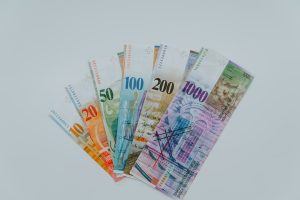Leverage is one of the most important aspects to consider when choosing a Forex broker. It is the ability to trade a larger position than your account balance, which can amplify profits or losses. A high leverage ratio can be both beneficial and risky for traders. So, what determines leverage in forex brokers? In this article, we will explore the factors that influence leverage in forex brokers.
Regulation
Forex brokers are regulated by various authorities around the world. These regulatory bodies set the maximum leverage that brokers can offer to their clients. For example, in the United States, the maximum leverage is 50:1 for major currency pairs and 20:1 for minor currency pairs. In Europe, the maximum leverage is 30:1 for major currency pairs and 20:1 for minor currency pairs.
Brokers are required to comply with these regulations, and they cannot offer higher leverage than what is allowed by the regulatory body. Therefore, the regulatory body is one of the main factors that determine leverage in forex brokers.
Type of Account
Forex brokers offer different types of accounts to their clients, and each account has different leverage options. For example, a standard account may offer a maximum leverage of 100:1, while a mini account may offer a maximum leverage of 50:1. The type of account you choose will determine the maximum leverage you can use.
Trading Style
The trading style of a trader also plays a role in determining leverage. A trader who uses a scalping strategy may require higher leverage to make small profits, while a trader who uses a swing trading strategy may not require as much leverage. Therefore, brokers may offer different leverage options based on the trading style of their clients.
Market Volatility
The market volatility also influences leverage in forex brokers. When the market is highly volatile, brokers may reduce the leverage to protect their clients from large losses. On the other hand, when the market is less volatile, brokers may increase the leverage to allow traders to make larger profits. Therefore, the market volatility is another factor that determines leverage in forex brokers.
Risk Management
Forex brokers have to manage their risk exposure, and leverage is one of the ways they do it. A broker may limit the leverage based on the size of their own capital, the number of clients they have, and the risk management policies they have in place. A broker that offers high leverage may be taking on more risk, and as a result, may require more capital and stricter risk management policies.
Conclusion
In conclusion, leverage is a crucial aspect to consider when choosing a forex broker. The regulatory body, type of account, trading style, market volatility, and risk management policies are the main factors that determine leverage in forex brokers. Traders should choose a broker that offers the appropriate leverage based on their risk tolerance, trading style, and account size. It is important to remember that while high leverage can amplify profits, it can also amplify losses. Therefore, traders should always use leverage with caution and have a solid risk management plan in place.





